Metal Head. Journalist. Politician. Danica Roem is blazing her own awesome trail
Here's how Danica Roem plans to oust Virginia's most anti-LGBTQ lawmaker.

Danica Roem can’t sit stay still for long. The Democratic nominee for the Virginia House of Delegates’ 13th District is a bundle of nervous energy who has always got to be doing something.
Dressed in her heavy metal rocker attire — black dress, wristbands, black leather boots — Roem fidgets and tugs at a couple of handmade charm bracelets that little girls have given her to wear as she campaigns. During a photoshoot, she showcases a playful side, strumming out melodies on her X-shaped guitar, tossing her hair, grinning ear to ear as the photographer positions her to catch the perfect rock-and-roll glamor shot.
Yet, sitting for extended periods of time isn’t Roem’s style. Three-quarters of the way through a two-hour interview, she stands up and begins pacing back and forth, gesturing animatedly as she answers questions about her campaign, her personal life, or society’s latest political machinations.
“I’ve got to pace,” she says. “That’s definitely part of being the extrovert. Yesterday, my phone battery was low, and my charger only goes out like this far.” She holds her palms a ruler’s length apart. “So I would charge it for a minute and walk in circles, and then I would pull it out and start walking through the house.
“There is actually some science to that, by the way,” she adds, referencing a recent study comparing differences between the brain chemistry of extroverts and introverts. “It’s weird.”
Her personality is naturally energetic and upbeat, but Roem can’t ever be characterized as out of control, or, as Virginia Republicans have attempted to characterize all of this year’s Democratic challengers, a “fringe extreme candidate.”
Instead, the lifelong Manassas resident exhibits passion for every subject she’s riffing on, speaking enthusiastically, with emphasis in the right places, dropping zingers, one-liners, or quotable sound bites — a trait picked up from more than a decade as a journalist for D.C. area newspapers — that will make an impression on her audience.
At heart, Roem is a policy wonk, able to wax eloquent on the most technical aspects of everything from traffic calming measures to the importance of competitive teacher pay. She speaks bluntly but earnestly, her eyes and voice reflecting the intensity of her feelings.
“It’s okay to be emotional,” she says. “But it’s not okay to let your emotions get the best of you so that you’re not thinking clearly. I want people to understand that I am thinking clearly, the actions that I’m taking are deliberate, they are well thought out, and I’m standing by what it is that I’m about to say.”
Roem made history in June when she became the first out transgender person in Virginia’s history to win a major-party primary. Should she be elected in November, she will become the first openly transgender person in the entire country to serve in a state legislature.
And yet, despite the historic nature of her candidacy, Roem is fiercely protective of her family and loved ones, probably the only instance in which she becomes tight-lipped and divulges very little. “I know that anti-transgender violence is real,” she says. “And I want to shield my family from having to deal with any blowback over it.”
A member of the metal band Cab Ride Home, she also has an anti-authoritarian streak, positioning her as the polar opposite of Republican Delegate Bob Marshall, who she will face in the November general election.
It’s Marshall who is the most frequent target of Roem’s verbal barbs, earning derision for his policy priorities, which include divisive social legislation such as a now-defunct ban on same-sex marriage, a proposed ban prohibiting LGBTQ people from serving in the Virginia National Guard, and a “bathroom bill” that would police which restrooms transgender people could use.
She points out Marshall’s failure to enlist even his fellow Republicans to support his bills. According to Virginia’s Legislative Information System, 68 of the 71 bills Marshall has introduced over the past two years have failed to become law, with many killed in committee, even though Republicans control the House of Delegates.
“This is someone whose party has a 2-1 legislative majority, who has 25 years of seniority, and who has no committee chairmanships to show for it. He has the futility rating of a freshman member of the minority party,” Roem says.
She takes issue with Marshall’s personal attacks on her, including a deliberate misgendering of her when speaking to both mainstream and right-wing media outlets.
“The person I’m running against has tri-gendered me this year,” she says. “He sent me a letter in the mail that he addressed to ‘Ms.’ Danica Roem. But then he misgendered me to The Washington Post when he called me ‘he.’ Then he sent out a letter to his supporters calling me ‘they.’ Pick one. By the way, the one to pick is ‘she’ and ‘her.’ That’s what’s on my driver’s license, that’s what’s on my passport. This is my 100 percent, full-time lived gender. This is a fundamental part of who I am.”
Roem isn’t a naturally pugnacious person, but also isn’t afraid to fight back when she’s attacked politically. And she’s completely dedicated her efforts to pulling off an upset against the battle-tested Marshall, even though she had to step down from her job as a journalist and take a financial hit to do so.
“I’ve been living off my CDs since I started the campaign,” she says. “I’m literally mortgaging my future for this, because those CDs were meant for my future mortgage. I’m all in on wanting this campaign — I have to be, because when you run against a 25-year incumbent, and you’re trailblazing while you do it, you don’t have any other choice. You’ve got to be all in. And I am all in to win on November 7.”
METRO WEEKLY: Why did you decide to run for public office?
DANICA ROEM: Because I’m so sick and tired of Route 28. That is the honest truth. I know it seems political, I know it seems like, “Oh, you’re just talking about what’s going to be the most palatable for a transgender candidate to say to other people.” But Route 28 has been a disaster my whole life. My mom’s been commuting up and down Route 28 for more than 30 years, and I know what it’s like as a kid to be sitting at All Saints Catholic School and Extended Day in Manassas until 6:30, sometimes close to 7 o’clock at night waiting for my mom to pick me up, because she was stuck on 28. No one should have to go through that.
MW: You’ve made fixing Route 28 one of your chief campaign issues, and yet just today, you were delayed in coming here because of traffic on Route 28.
ROEM: I was running late because of the traffic lights in Centreville. I got stuck at the same traffic lights that, even on a Saturday, our communities deal with every weekday. Every working day, they’ve got to start battling Route 28 northbound. There’s this four-hour block of just perpetually backed-up traffic, and it’s been like this for three decades.
Meanwhile, what did Delegate Marshall do this year? What was his big bill that he decided to focus on, when the Route 28 corridor goes right through his district? The bathroom bill, HB 1612. Maybe if we put a public, multi-stall, unisex bathroom somewhere in Centreville along Route 28, he might do something about it, but until then, we are going to be stuck in traffic because our delegate’s legislative priorities are more concerned with where I go to the bathroom than how his constituents get to work. I get tired of it.
MW: How has the traditional, non-LGBTQ news media treated your candidacy?
ROEM: They sensationalize it. Look at the headlines. I’ve been featured in well over one hundred earned media stories. When you look at the news coverage of me, it’s almost always “transgender candidate” or “transgender journalist” in the headline. I can count on one hand how many times my actual name has ended up in the headline. Like not the subhead, the actual headline, where it says “Roem XYZ,” right?
MW: Obviously, we’re going to have to mention it in our own coverage.
ROEM: Oh, I know you are. But here’s the thing: Back on January 3, there was a lot of news value to that. I was the first transgender person to run for office in Virginia, that we can tell so far. Definitely, for sure, the first transgender person to run for the House of Delegates. There was news value on June 13 and 14 to becoming the first transgender person to ever win a party nomination for office in Virginia, especially for General Assembly. That’s a big deal. How about the other seven months?
We’re talking about my Route 28 policy, and this week, WUSA Channel 9’s first headline was “Transgender candidate runs for office.” Then their second version of that headline was “Transgender candidate just wants to get rid of traffic.” They could have also gone with “Journalist,” “Democrat,” “Roem,” “Danica Roem wants to get rid of traffic lights,” if you want to be really specific about it.
It’s the web editors, really, the headline writers. Once you get into the story, the reporting, generally speaking, is good, neutral, disinterested, third-party observer based. Very, very few times have I seen something in a news story that caused me to be upset with the reporter. It’s happened, but very few times.
One case was in The Washington Post. One of the few cases where I like was legitimately upset was when, during the primary, Steve Jansen — who’s now a good friend of mine — was identified in the story as “Steve Jansen, a former prosecutor from Wayne County, Michigan, who leads the national organization, Prosecutors Against Gun Violence.” I was identified as “Danica Roem, LGBT activist, who would be the first transgender woman elected to the General Assembly.” I’m sorry, but you didn’t say, “Steve Jansen, cisgender heterosexual male, who’ll be the first former Wayne County prosecutor elected to Virginia General Assembly.”
When you cover non-LGBTQ people, you need to cover LGBTQ people with the same deference, and the same level of respect, and with the same credentials that you cover anyone else. “Danica Roem, former Gainesville Times reporter, who would be the first transgender person elected to the General Assembly.”
I understand the news value of it. I don’t have a problem with my gender identity being included, but you can’t go and undermine my candidacy by basically making me out to not have professional qualifications in line with the job that I seek. I’m a reporter. I covered my home community for nine years, two months and two weeks. I authored more than 2,500 news stories about the greater Prince William County area. That’s my chief qualification for office. Plus I’m a lifelong 13th District resident, I’m a lifelong Manassas resident. Those are my chief qualifications.
I’m also a stepmom, a heavy metal vocalist, I’m a transgender woman, I’m a road dog, I’m a vegetarian, I’m an ENFP personality type. I’m a dedicated yogini — I love practicing yoga. I have a lot of other identifiers, but these two words, “transgender candidate” or “transgender journalist,” have just dominated above all my other identifiers when it comes to media coverage.

MW: Do you think voters who you’re talking to are being swayed by that coverage?
ROEM: No. We won the primary by 12 percentage points, and when you look at where did I perform the best, it was the Route 28 corridor. Go figure that in Yorkshire, the heart of Route 28 and the 13th District, we pull in 53 percent of the vote in a four-way primary. In my home precinct, Yates Ford, where most of the people who live there either deal with Route 28 every day, or they deal with Yates Ford Road because 28 is a mess, I got 54.5 percent of the vote, when two of the other candidates sent out twice as many mail pieces as I did. I was outspent by both of them by tens of thousands of dollars.
That’s the strength of the message — plus that’s the strength of knocking on doors relentlessly, as well as my staff, my volunteers, and outside organizations like Trans United Fund, and the Victory Fund, and the Progressive Change Campaign Committee. We had 43 percent of the vote overall. Why? Because of the message. I’m out here saying, “Here’s my plan, here’s what it’s going to look like, here’s how I’m going to pay for it, here’s how much it’s going to cost, here’s how I’m going to get it done.” You have that level of specificity and people in the district say, “You know what? I can get behind this.”
MW: Let’s talk about your childhood.
ROEM: I’m a lifelong Manassas resident from Prince William County, a lifelong resident of the 13th District. I went to Little Elves Academy Preschool in 1988, and Loch Lomond Elementary School from kindergarten to third grade. I wasn’t doing too well in public school in terms of temperament, in terms of getting along. So my mother sent me to All Saints Catholic School because I was baptized Roman Catholic at All Saints Catholic Church in Manassas. This is where Delegate Marshall goes to church, by the way.
I went to All Saints from fourth grade to eighth grade, then I had a 45-minute commute every day to Paul VI Catholic High School in Fairfax, from 1998 to 2002. I did not like being there, just to be blunt about it. I did not enjoy my time at Paul VI. I never fit in with any one particular niche, or any one particular clique well.
A lot of that is just being a contrarian as a teenager, and another part of that was being a really bad closet case, who was perceived as gay even though I was actually trans. There was a lot of that sort of rhetoric thrown at me. I know what it’s like to be in the gym and be singled out, and to have one person loudly ask, “Are you gay?” And to be in the gym playing volleyball, and going to make a dive and someone saying, “Oh, you’re on your knees” — comments like that. And being in wrestling, and, one of the guys on my wrestling team saying, “Aside from the fact that you’re gay and you like to roll on the mats with men, why else do you take wrestling?”
MW: When did you first realize that you were transgender?
ROEM: I was fairly certain by fifth grade. By seventh grade, there was no question. The stepping stones were there the whole time. I remember in kindergarten looking at the one boy who sat with the girls, wondering, “How come the girls are okay talking to him but not everyone else?” He was probably gay. When you come to think about it, it was like, “Yeah, he probably was, that’s right.” I remember being in Loch Lomond, and in my third grade class, there was one boy who had long hair. I was fixated, just like, “He could grow his hair out. That’s really cool. He can have long hair.” When I was playing baseball, there was one girl on my majors team, and the boys all had crushes on her. I was just like, “I just want to wear her scrunchie.”
MW: Did you ever dress in girl’s clothes or play with toys that people associated with girls when you were younger?
ROEM: That would not have even been an option. That would not have been available to me. I immersed myself into baseball as my great escape from everything. Baseball was a source of stability at a time when I didn’t always have stability. I come from a lot of tragedy from the time I was a kid. Baseball was a bond that I could have with my grandfather. I lived with my grandfather in a house for 18 years after my dad died.
MW: Were you and your grandfather close?
ROEM: Yes. He died in 2008. He was 92. For his 90th birthday, my senior thesis for college, I wrote his biography based on oral history. The purpose of that was to prove the importance of oral history, so I wrote this story about him and his family and how his ancestors came from Italy.
On the seventh day of my campaign, I received a forwarded email from a conversion therapy advocate, which she had previously sent to Bob Marshall. She said the reason I’m transgender is because my dad died when I was a kid and my grandfather was an inadequate male role model. I can’t tell you the level of fury I had about that, but I flipped the script on it and raised money off of it and said, “I’m going to take your negative and turn it into a positive.” I know I raised money. One of my friends, as soon I shared the email, donated $25 to me.
I was so upset because that person was reading the obituary that I wrote about my grandfather to say that. I was just like, “You want to attack my family? How dare you. Don’t even think about it. One, you’re factually wrong. Two, you have no idea why someone is transgender, okay?” I know a lot of transgender people who come from stable houses with a mom and a dad, and they are transgender. Why? Because that’s part of who they are, it’s part of their DNA.
MW: When did you come out to your mother and sister?
ROEM: I came out to them the same day, on my 30th birthday. September 30, 2014.
MW: What is suffering with gender dysphoria like?
ROEM: It’s like having this feeling of having a hand around your neck that slowly, over time, begins to clench, and it eventually gets to the point where you can’t breathe anymore. I wasn’t at risk of killing myself, but I also want people to understand that a transgender person shouldn’t have to be at the point of suicide for people to take gender dysphoria seriously. We shouldn’t have to get that far. So many people don’t understand this.
This gets me really, really upset, the idea that, “Oh, if you weren’t gonna kill yourself, then you could have lived with it.” You’re out of your mind! You are absolutely out of your mind to spew stuff like that. You shouldn’t have to be on the brink before you get the help that you need from a doctor who knows how to deal with gender dysphoria, who knows how to deal with transgender clients.
MW: How did you seek help?
ROEM: I tried to find a semi-local psychologist. I wanted that person to be a woman. I wanted that person to be relatively young, because I wanted to be able to relate to that person as much as possible. I wanted that person to be a doctor. And I wanted that person to be a psychologist, as opposed to just a mental health worker. That allowed me to clear all my neuroses going in. I found a therapist who likes Slayer — I was like, “Yes! This is great.” We were an instant fit. So, I called her, and she practiced out of Fairfax. I wanted to make sure that the person I picked was not working in Prince William County, because of my job there. Too much risk. I was still closeted to a lot of people.
MW: You’ve mentioned that gay clubs were instrumental to your transition. How so?
ROEM: When I was 18, I started going to gay clubs in D.C. I would go to Nation. I did Apex. There was an entire decade where I felt the only safe place I could present myself as female, and not have to worry about my life being at stake, was at gay clubs. And at some industrial metal concerts. But I didn’t go to that many industrial shows. So gay clubs were the only salvation I had where I felt safe, where I felt like I could do it. My girlfriends would take me out, and for a couple hours once a quarter, just to have that chance for expression meant the world. It meant, back home, I would sit in front of a mirror for four-and-a-half to five-and-a-half hours with a pair of tweezers pulling out every single facial hair south of my eyebrows.
MW: Sounds painful.
ROEM: Just on my neck and my face. You know why? Because the five o’clock shadow would have come back. The smoothness would never be there. Even with a blade, even a good one, it’s still too dark. You pull all those out, it makes your face so red, but I would rather go through the physical discomfort of literally plucking out every single hair on my face with a tweezer than have someone mistake me for male. That’s where I was at that point. Because I could at least put makeup over that.
I had two different worlds that I was living in. I had this public image in the metal world, which included being a journalist, which explained the long hair, and being in a band, being all of that. The transgender world was over here, but they did not overlap. The more and more I was going to gay clubs, the more and more I was presenting myself as female, the more and more I wanted it to be 24/7, 365, all the time.
My first day on hormone replacement therapy was December 3, 2013. The month prior to that, my inner circle held a transition party for me over at Town in D.C.
MW: Let’s talk briefly about national politics. How did you feel when you heard about President Trump’s tweets about the transgender military ban?
ROEM: I was in Annandale with a bunch of other Democratic candidates for the House delegates. We’re at a AFL-CIO presentation, learning about labor union issues, and there’s a break. So I’m having a very pleasant conversation with Kathy Tran, who’s our nominee in the 42nd District, and Delegate Mark Sickles walks over to me and says, “You heard that Donald Trump just banned transgender people from serving in the military?” I said, “Are you serious?” I was not sure if he was joking or not, and he’s like, “Yeah, seriously.”
I paused, and I said, “Excuse me, I need to go yell some obscenities. I’m going to leave the room.” I got up. I closed the door. I did exactly as I said I would. I walked back in the room and sat down. I tried to continue my conversation, and then said, “I’m sorry. I can’t be here right now,” and literally walked out the door.
I got into my car, said some more obscenities, drove out to Manassas, called my campaign and said, “We need to meet as soon as I get back because right now, if I went on social media, I would say something that would not go well.”
We talked it out, and we decided we’re going to construct a statement. And we start figuring out all the different points we want to hit along the way. Being able to go through that process with other people allowed me to still be passionate about it without being a raging ball of fury. That’s important, because in politics, you have to be levelheaded even when you’re being discriminated against. You have to be levelheaded in your response. It’s not just for perception. It’s so that people look at you and they see you in leadership, taking command of the situation.
I unloaded on Donald Trump for that, and I found a way to do it. The phrase that I used was, “Transgender military members, like Staff Sergeant Logan Ireland and Corporal Laila Villanueva, have done more to serve and protect their country than Donald Trump ever will.”
I stand by that. This is someone who had five deferments so he wouldn’t have to serve in Vietnam, someone who considered his own self to be unfit to serve. He has demonstrated through his actions and his inability to tell the truth in office that he’s unfit for the presidency. It costs more for him to spend a weekend at Mar-a-Lago than it would be to treat every transgender military member who needs hormone replacement therapy or surgery.
So we sent out that statement, and then I said, “Okay, I’ve said what I needed to say. I’m going to go protest.” I drove out to D.C., parked down the street from Lafayette Square. I spoke out. I literally took the bullhorn. I told people, “I don’t want to be here right now. I don’t want to have to do this. I want to just be talking about Route 28 and all the local issues back home, but I’ll be damned if I’m going to be silent when the President of the United States discriminates against the people he was elected to serve.”
MW: Do you ever look forward to the day when the focus isn’t on your gender identity, and you just get lumped in with the rest of the Democratic caucus in the Virginia House of Delegates?
ROEM: No. I intend to make sure that I stand out. But I want to stand out and be effective. Delegate Marshall certainly stands out, but when your own party kills 27 of your 30 bills in one year and the governor vetoes another one, then you’re not effective.
I have the idea here that I can stand out and say, “You know what? Yes. I am transgender.” And it will be a defining moment of history when I stand up on the floor of the House of Delegates and say, “Mr. Speaker,” and it’s hopefully Dave Toscano, but if it’s not Dave Toscano, it’ll be Kirk Cox.
The Speaker of the House will look to the left and say, “The gentlewoman from Manassas has the floor.” That day will fundamentally change the conversation about LGBTQ rights in Virginia and across the country, and when that happens, there will be a 10-year-old transgender girl from Roanoke up in the gallery, her name’s Clara. And there will be a 15 year old transgender boy from Prince William County named Robbie. They’ll be in the gallery. They will see me say, “Thank you, Mr. Speaker,” and they will see, right in front of them, that no matter who it is that they want to be, that no matter what their dreams are, they can achieve their goals while proudly being who they are.
As St. Francis de Sales said, “Be who you are and be that well,” and my job is going to be to “be that well,” for people in the 13th District, and for kids like Clara and Robbie.
Virginia’s general election is on Tuesday, Nov. 7, 2017. For more information on Danica Roem’s candidacy, visit facebook.com/danicafordelegate or danicaroem.ngpvanhost.com.
Support Metro Weekly’s Journalism
These are challenging times for news organizations. And yet it’s crucial we stay active and provide vital resources and information to both our local readers and the world. So won’t you please take a moment and consider supporting Metro Weekly with a membership? For as little as $5 a month, you can help ensure Metro Weekly magazine and MetroWeekly.com remain free, viable resources as we provide the best, most diverse, culturally-resonant LGBTQ coverage in both the D.C. region and around the world. Memberships come with exclusive perks and discounts, your own personal digital delivery of each week’s magazine (and an archive), access to our Member's Lounge when it launches this fall, and exclusive members-only items like Metro Weekly Membership Mugs and Tote Bags! Check out all our membership levels here and please join us today!








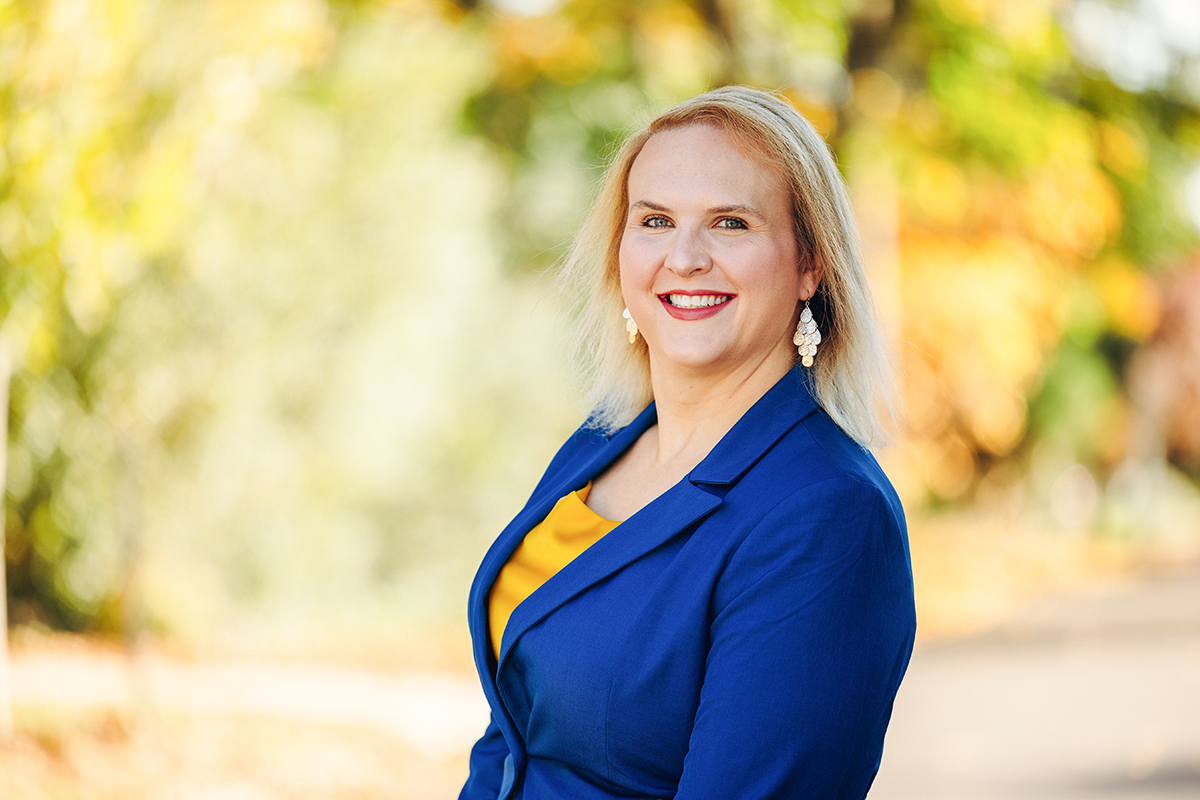
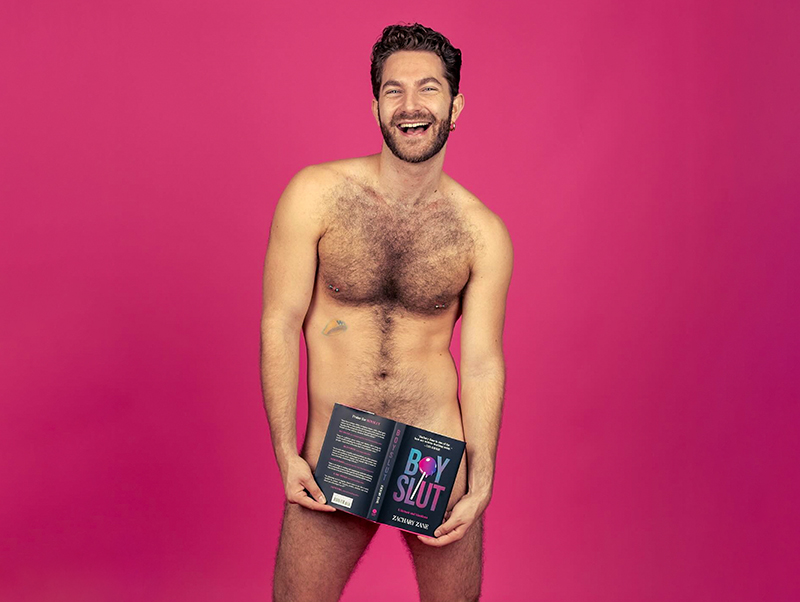















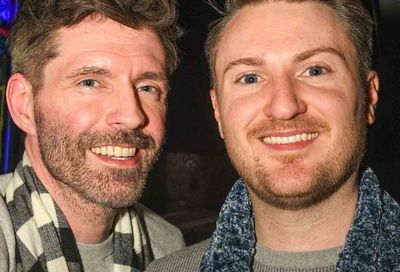
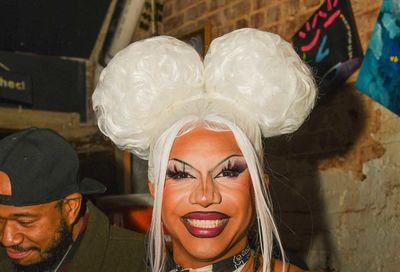
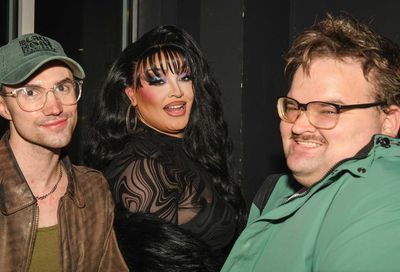
You must be logged in to post a comment.